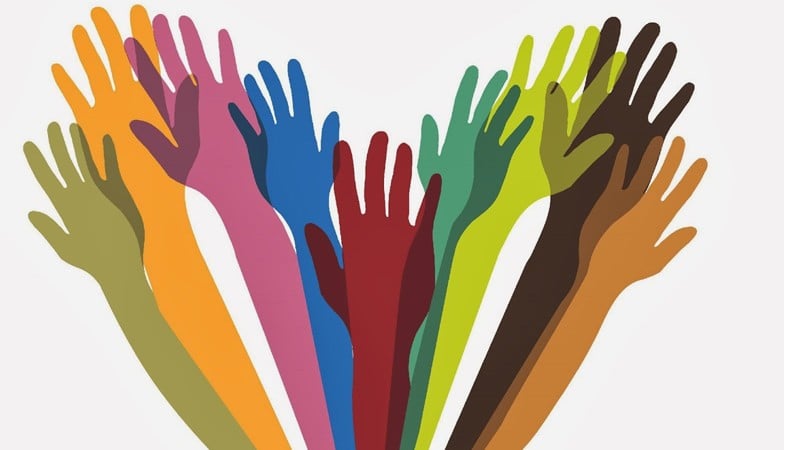
It is my belief that the value we want to foster is not tolerance, it is compassion

"A rose by any other name would smell as sweet," said Shakespeare. That may well be true for flowers. Not so when we have to put a name to values, emotions or attitudes. Words matter then.
The word tolerance, for instance, is surely not the one we want to use when we want to convey a sense of acceptance and respect for differences, as is the intention when the world celebrates an International Day for Tolerance.
Tolerance implies a certain sense of condescension. According to the Oxford dictionary, tolerance is the ability or willingness to tolerate the existence of opinions or behaviour that one dislikes or disagrees with.
Showing tolerance to someone has some implicit connotations. First, that you dislike or disagree with something; second, that by default you consider yourself to be in the right and, third that by bearing or tolerating the difference you are somehow the bigger person. If the frills are shorn away from that narrative, it shows you up to be a self-righteous bigot.
If you switch roles and put yourself in the place of the one being tolerated would you not feel small, demeaned and humiliated as if you had received an undeserved favour? As if the one tolerating you was a generous, large-hearted person, who could put up with your different face, accent, view or behaviour despite it being offensive to his/her sensibilities.
Would that not force you to feel obliged and to show gratitude while perhaps feeling resentful in your heart?
Words have subversive powers. By using the word tolerance we send a subliminal message that negates the value or attitude we want to espouse. Mark Twain, the American writer, describes an anecdote from his childhood that may illustrate this better.
Read also: The fading limits
Mark Twain’s family had hired a little slave boy from someone. The little boy had been brought away from his family and his friends, half way across the American continent, and sold.
Mark Twain writes, ‘‘He was a cheery spirit, innocent and gentle, and the noisiest creature that ever was, perhaps. All day long he was singing, whistling, yelling, whooping, laughing -- it was maddening, devastating, unendurable. At last, one day, I lost all my temper, and went raging to my mother, and said Sandy had been singing for an hour without a single break, and I couldn’t stand it, and wouldn’t she please shut him up. Tears came into her eyes, and her lip trembled, and she said something like this--‘Poor thing, when he sings, it shows that he is not remembering, and that comforts me; but when he is still, I am afraid he is thinking, and I cannot bear it. He will never see his mother again; if he can sing, I must not hinder it, but be thankful for it. If you were older, you would understand me; then that friendless child’s noise would make you glad.’ It was a simple speech, and made up of small words, but it went home, and Sandy’s noise was not a trouble to me any more".
Was Mark Twain’s mother asking him to show tolerance? Not really. She was teaching him how to put himself in the place of the child and imagine what he was feeling. That simple mental exercise was enough for Mark Twain to understand the pain and loneliness of that child and allow him to co-exist without any feelings of annoyance or anger. The word that describes this behaviour is not tolerance. Perhaps ‘compassion’ would be the right word.
Compassion is aptly summed up in the Golden Rule, which asks us to look into our own hearts, discover what gives us pain, and then refuse, under any circumstance whatsoever, to inflict that pain on anybody else.
The world today is a scary place. The president of the most powerful country in the world is a xenophobic bigot, a racist and a misogynist and a large number of ordinary American people have voted him in. In our own country, we have demons of sectarianism, extremism and hate gnawing away at the very soul of our nation. If we fail to address this challenge, we will fail the test of our time.
It is my belief that the value we want to foster to be able to do that is not tolerance, it is compassion. If I were a Hindu, an Ahmadi, a Christian or a Shia in Pakistan, I would not wish to be tolerated. I would not even wish to be liked. I would only wish to be understood. To be treated like you would want to be treated yourself.